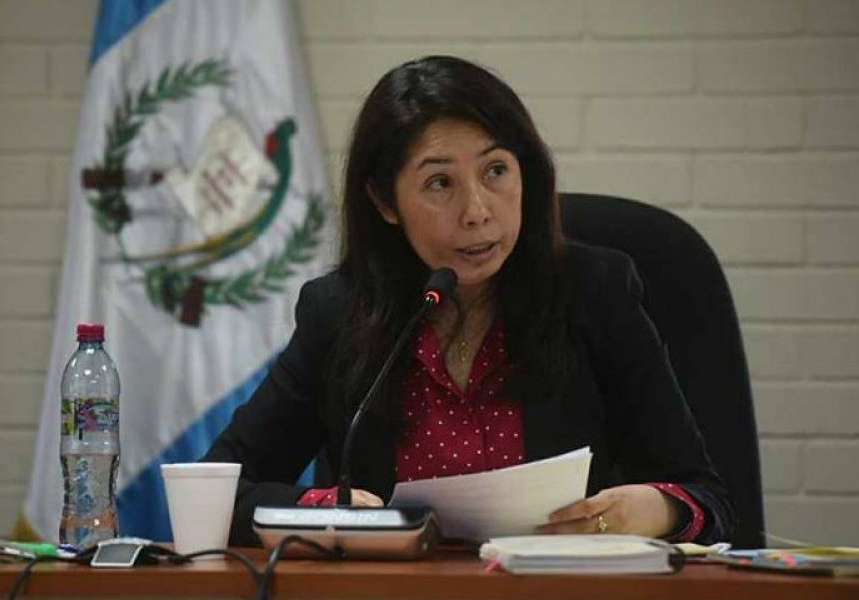
May 29, 2018 | News
The ICJ is deeply concerned about the recent attacks against Judge Erika Aifán that put judicial independence in Guatemala at imminent risk. Judge Aifán has always been upright and honest in her rulings, which she bases on sound principles of the rule of law.
Ramon Cadena, Director of the Central American office of the ICJ stated today: “We must support Judge Aifán because the guarantee of judicial independence is under serious threat.”
“Judge Aifán is an honest and brave Judge presiding over emblematic cases, which could be put in jeopardy if the legal actions against her proceed,” he said.
“It is totally unacceptable that a Court imposes a fine against a professional carrying out their duty. The Judges of the Third Court who imposed this fine should be investigated by the Public Ministry on account of their actions, which constitute an attack on judicial independence,” he added.
The ICJ firmly believes that the independence of judges is essential to uphold the rule of law so that public officials can effectively guarantee access to justice for victims of human rights violations.
The Inter-American Commission of Human Rights (IACHR) has established that “the independence of the judicial power has been recognized as a general principle of law and enshrined in many international treaties”.
For that reason, and with reference to the Guatemalan Constitution and international human rights standards, the ICJ considers that the Guatemalan Supreme Court should take an active role in the defence of judicial independence and in this specific case concerning Judge Aifán.
The ICJ also urges the UN Special Rapporteur on the Independence of Judges and Lawyers to visit the country.
The ICJ also considers that the Guatemalan Prosecutor for Human Rights should submit the case to the IACHR so that that Commission can grant preventive measures to Judge Aifán and investigate this flagrant violation of judicial independence.
The ICJ also requests that the IACHR intervenes in the present situation.
The ICJ considers that the motives for the attacks against Judge Aifán are because she is currently presiding over emblematic cases in the fight against impunity and corruption.
Groups who are interested in maintaining a situation of impunity wish to see her removed from her position.
The ICJ recalls that a judge can only be removed from office for reasons established by law, following a disciplinary process that complies with the basic guarantees of a fair trial; or when a judicial officer has completed the term of their mandate.
Neither of these conditions is met in the case of Judge Aifán. Therefore, the ICJ can only conclude that the attacks against her are attacks on the independence and impartiality of the judiciary as a whole.
It is self-evident that the independence of every judicial body is indispensable for the fulfilment of fair trial standards without which the right of access to justice is undermined.
Furthermore, without judicial independence, people lack confidence in the courts or are fearful and therefore refrain from taking cases to justice.
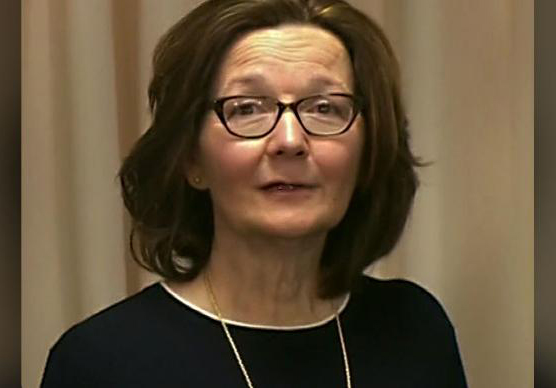
May 9, 2018 | News
The ICJ said today that Gina Haspel, nominated by Donald Trump to be Director of the CIA, should be subject to a full criminal investigation for her alleged involvement torture and other serious crimes, rather than elevated to serve as the country’s highest intelligence office.
The ICJ statement came as the United States Senate Intelligence was poised to beginning hearings on her confirmation to the position.
“If Gina Haspel becomes CIA Director, the United States will be sending a signal to the world that it has dropped the pretence of caring about even the most serious human rights violations,” said Sam Zarifi, ICJ Secretary General.
“It will show that torturing and disappearing people by US officials will not only be met with impunity, but will be no bar to career advancement.”
Following the terror attacks against the United States of 11 September 2001 until 2007, the CIA held at least 119 terror suspects or persons it suspected to have intelligence value in places of secret detention outside of US territory.
The black sites were situated in several countries, including Afghanistan, Lithuania, Poland Romania, and Thailand.
The detainees, who had no contact with the outside world, were placed beyond the protection of the law and subjected to torture and cruel, inhuman and degrading treatment.
The torture included near drowning (“waterboarding”), prolonged sleep deprivation, placement in painful stress positions for extended periods, forced rectal feedings, and slamming against walls.
Gina Hapel oversaw at least one “black site” detention centre in Thailand in 2002, while detainee Abd al-Rahim al Nashiri was being tortured there.
She is credibly alleged to have played a significant role in destroying video evidence of interrogations that were carried out under torture.
“The European Court of Human Rights has already condemned Poland for violating the rights of Abd al-Rahim al Nashiri, after he was transferred to secret CIA detention facility in Poland, yet nobody directly responsible CIA has ever been held accountable for these serious crimes,” said Sam Zarifi.
Contact
Ian Seiderman, ICJ Legal and Policy Director, t +41 22 979 3837 ; e: ian.seiderman(a)icj.org

Mar 22, 2018 | News
The ICJ has been awarded a grant from the Royal Norwegian Embassy in Mexico to continue its work in the area of independence of the judiciary in Guatemala.
This initiative titled “Strengthening the rule of law in Guatemala, Phase II” aims to strengthen domestic compliance with, and implementation of, international standards providing for judicial independence through the training of judges, raising awareness on this topic, as well as providing support to judges at risk.
The ICJ will be working together with the Mayan Association of Lawyers and Notaires of Guatemala as a partner in this action, through a sub grant of 1,622,801 NOK.
Guatemala-Grant Agreement with Norway-2018-ENG (full grant agreement, in PDF)
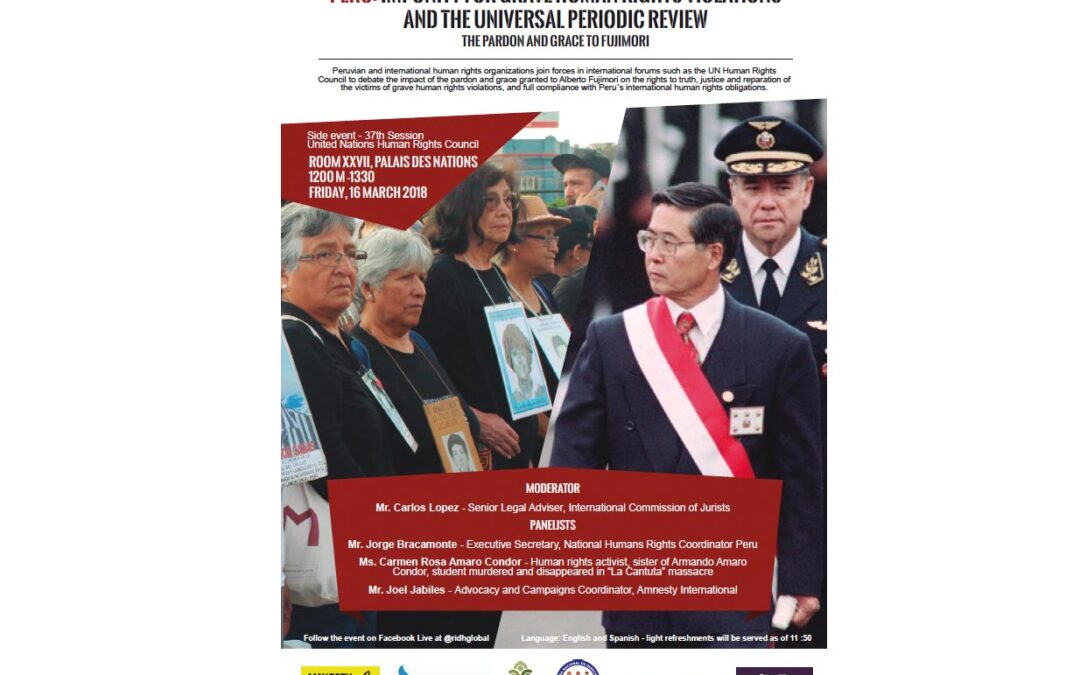
Mar 13, 2018 | Agendas, Events, Human Rights Council, News, Work with the UN
This side event to the 37th Session of the United Nations Human Rights Council takes place on Friday, 16 March 2018, from 12.00 to 13.30, Room XXVII, Palais des Nations, Geneva. It is co-sponsored by the ICJ.
Peruvian and international human rights organizations join forces in international forums such as the UN Human Rights Council to debate the impact of the pardon and grace granted to Alberto Fujimori on the rights to truth, justice and reparation of the victims of grave human rights violations, and full compliance with Peru´s international human rights obligations.
Moderator
- Mr. Carlos Lopez – Senior Legal Adviser, International Commission of Jurists
Panelists
- Mr. Jorge Bracamonte – Executive Secretary, National Humans Rights Coordinator Peru
- Ms. Carmen Rosa Amaro Condor – Human rights activist, sister of Armando Amaro
Condor, student murdered and disappeared in “La Cantuta” massacre
- Mr. Joel Jabiles – Advocacy and Campaigns Coordinator, Amnesty International
Follow the event on Facebook Live at @ridhglobal
Language: English and Spanish – light refreshments will be served as of 11 :50
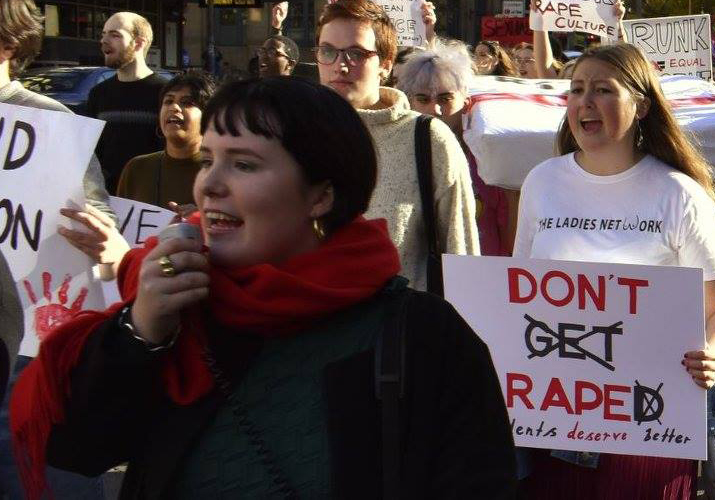
Mar 8, 2018 | Multimedia items, News, Video clips
Today on International Women’s Day the world looks to celebrate the achievements of women and advances made towards the realization of women’s human rights but the day is also an opportunity to address the issues that continue to disadvantage women.
In the 70th anniversary year of the Universal Declaration of Human Rights many women around the world have seen States failing to live up to their obligations to ensure that they are able to exercise their human rights.
Where women’s human rights are violated many women face discrimination, denial of equal protection of the law and other impediments in accessing the justice that they deserve.
“The ICJ has a strong commitment to addressing the obstacles women face in accessing justice,” said ICJ Acting Vice-President, Justice Radmila Dragicevic-Dicic.
“The judiciary has an important role in protecting the rights of women, but in many States there is a lack of proper awareness and understanding of issues such as gender based-violence. Many judges would benefit from judicial education on specific gender-based issues to ensure that women victims are made visible and their rights protected by domestic laws and relevant international standards,” she added.
For several years the ICJ has worked on women’s access to justice issues in different countries in all regions with a variety of stakeholders, including human rights defenders, lawyers, judges, governmental authorities and international rights experts and mechanisms.
For example, in Tunisia, the ICJ issued a memorandum calling on authorities to remove the obstacles women face in accessing justice.
The ICJ has held regional dialogues in Africa and Asia with judges and lawyers.
In Asia, one outcome of this was The Bangkok General Guidance for Judges in Applying a Gender Perspective, designed to assist judges in employing a gender perspective in deciding cases before them, which has since been adopted for use by judiciaries in Indonesia and the Philippines.
In Africa, the need for gendered perspectives in judicial decision-making was also raised in a regional report evaluating sexual and gender based violence (SGBV) and fair trial rights.
The ICJ has undertaken substantial work on women’s access to justice in the context of SGBV, including a report calling for an eradication of harmful gender stereotypes and assumptions and a Practitioners’ Guide on Women’s Access to Justice for Gender-Based Violence.
Both have been used as training tools in Asia, Africa and MENA, most recently at a workshop on SGBV in Swaziland.
Last year the ICJ released a memorandum on effective investigation and prosecution of SGBV in Morocco.
The ICJ has also undertaken trial observations during hearings in the landmark Sepur Zarco case, the first case that resulted in a conviction for sexual crimes that had occurred during Guatemala’s internal conflict in the early 1980s.
The ICJ regularly engages with the UN Human Rights Council and the UN Committee on the Elimination of all Forms of Discrimination against Women to highlight issues around women’s access to justice and call on the international community to be vigilant in upholding women’s rights protections.
“The ICJ is lucky to count among its number some very impressive women human rights defenders, who bring a great deal of expertise to the work of the organization,” said Dragicevic-Dicic.
“The five most recent additions to the ICJ have further strengthened the organization’s ability to speak authoritatively on women’s rights, and I look forward to working with my new colleagues to enhance women’s access to justice,” she added.
The new additions to the ICJ include Dame Silvia Cartwright, Former Governor of New Zealand; Professor Sarah Cleveland, Constitutional and Human Rights Professor at Columbia Law School in the USA; Justice Martine Comte who has over 30 years judicial experience in France; Mikiko Otani, member of the UN Committee on the Rights of the Child from Japan; and Justice Lillian Tibatemwa-Ekirikubinza from the Supreme Court of Uganda.
In an interview with the ICJ, Commissioner Justice Elizabeth Evatt, a distinguished Australian lawyer, jurist and trailblazer for women in the legal profession in her country, spoke about the importance of women being able to access justice.
One of the architects of Australia’s Family Law Act of 1975, Justic Evatt told the ICJ how the Act made divorce more accessible and abolished the Common Law relics that gave men greater rights over women, however new problems have emerged since then.
Justice Evatt explained that “(the Act) was an extremely important reform for women. It made it far easier for men and women to access divorce and have their matters dealt with because the court had conciliation and counselling services and also legal aid was more readily available. But I am afraid that since those days, thing have changed. The Family Court is now beset with delays and obstacles and it is impossible for people to get legal aid. People have to take their case on their own or face huge legal costs, so having begun well, it hasn’t continued well. More resources are needed.”
Justice Evatt also considers that there is a need for the government and the judiciary to take more action to address domestic violence.
However, she noted, “there has been a change over the years with a growing awareness of both the police and the local courts, which are the main ones dealing with violence. They have become far more aware of the need to take action to protect women and prevent violence but the cure for domestic violence does not lie just with the courts but also with the whole of society.”
Watch the interview:
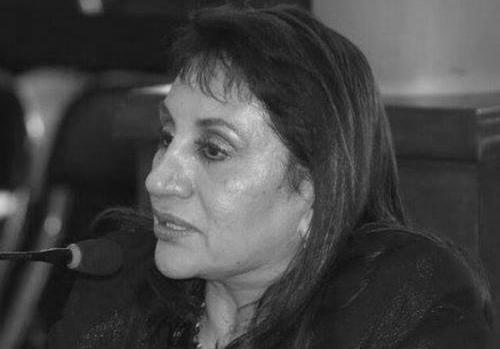
Feb 16, 2018 | News
The ICJ strongly condemns the attack against the Deputy Prosecutor for Human Rights, Sonia Elizabeth Montes Valenzuela, carried out on 15 February by unknown gunmen in the central Zone 1 of Guatemala City.
Sonia Montes was on her way to work at the Public Prosecutors Office when two gunmen on motorbikes drove past and fired six bullets into the car.
Fortunately both Sonia Montes and her driver, Néstor Valdes Antonio, were unharmed.
“This is a vile attack against the justice system in Guatemala and the whole human rights movement in the country. These types of attacks seek to destabilize democracy and the rule of law,” Ramón Cadena, the ICJ Director stated.
“We call on President Jimmy Morales to carry out a full and impartial investigation in order to identify the material and moral authors of these acts,” he added.
The ICJ also expresses its solidarity with the families of the victims of the attack and with the Attorney General, Thelma Aldana, and the Commissioner of the International Commission against Impunity (CICIG), Iván Velásquez.
The Public Prosecutors’ Office and the CICIG are working tirelessly to investigate crimes and to end impunity and corruption in Guatemala.










